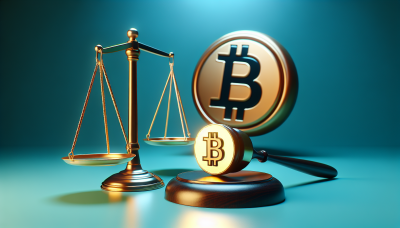Coinbase initiates appeal against SEC on investment contract classification for digital assets

Coinbase’s court move could redefine SEC’s crypto oversight.
Coinbase has filed a motion to appeal a judge’s decision from last month that allowed the SEC’s lawsuit against them to proceed, said Paul Grewal, Coinbase’s chief legal officer, in an X post today. The appeal, if granted, would allow the Second Circuit Court to review the US Securities and Exchange Commission’s (SEC) authority to classify certain digital asset transactions as investment contracts, potentially suspending the ongoing trial.
Today @Coinbase filed a brief asking the Court’s permission to seek an interlocutory appeal in our @SECGov case on this controlling question: whether an “investment contract” requires something contractual – we think it does, the SEC disagrees. 1/5 https://t.co/M5HgMQxCLF
— paulgrewal.eth (@iampaulgrewal) April 13, 2024
Coinbase’s motion focuses on whether digital asset purchases qualify as “investment contracts” under SEC rules, a resolution that would have far-reaching implications across the digital asset industry. The firm seeks a clear ruling from a higher court to end uncertainty.
According to Coinbase, the definition of an investment contract has included the necessity of post-sale obligations, a standard upheld by both the Supreme Court and the Second Circuit for nearly a century. Despite this, the SEC has aggressively pursued a new interpretation, suggesting that the mere integration of digital assets into a token’s ecosystem could constitute an investment contract.
” In the 90 years since the federal securities laws were enacted, neither the Supreme Court nor the Second Circuit has ever found an investment contract without a post-sale obligation. But in a blitz of recent enforcement actions against the digital asset industry, the SEC has advanced the theory that no such obligation is required,” stated Coinbase’s legal defense.
This approach has sparked widespread debate among lawmakers, regulators, and industry participants, with even SEC Commissioners acknowledging the regulatory uncertainty plaguing the crypto sector, Coinbase notes. The firm argues that the SEC’s broad interpretation is creating uncertainty in an industry that has seen exponential growth and economic influence.
Coinbase’s legal defense challenges the SEC’s claims, asserting that the transactions in question lack the traditional elements of an investment contract. According to the company, the Second Circuit’s appeal is an appropriate vehicle to provide urgently needed guidance on this important legal matter.
“The application of Howey to digital asset transactions raises hard questions. That Members of Congress, Senators, and regulatory agencies have divided in answering them bespeaks the difficulty of the subject matter, and the divergent judicial outcomes illustrate the point. As a result of these divisions, a “cloud of legal uncertainty [] hangs over” the digital asset industry…This case offers the ideal vehicle for the Second Circuit to quickly and cleanly remove it,” stated Coinbase’s legal defense.
Today’s motion comes after a US court recently rejected Coinbase’s appeal in a lawsuit brought by the SEC last year. Judge Failla found the SEC’s evidence sufficient to require Coinbase’s registration as an exchange, broker, and clearinghouse.
However, she did side with Coinbase on the separate issue of their wallet product, concluding it wasn’t connected to the SEC’s securities charges.
Following the court’s dismissal, Grewal said that Coinbase would continue its legal battle against the SEC.
The information on or accessed through this website is obtained from independent sources we believe to be accurate and reliable, but Decentral Media, Inc. makes no representation or warranty as to the timeliness, completeness, or accuracy of any information on or accessed through this website. Decentral Media, Inc. is not an investment advisor. We do not give personalized investment advice or other financial advice. The information on this website is subject to change without notice. Some or all of the information on this website may become outdated, or it may be or become incomplete or inaccurate. We may, but are not obligated to, update any outdated, incomplete, or inaccurate information.
Crypto Briefing may augment articles with AI-generated content created by Crypto Briefing’s own proprietary AI platform. We use AI as a tool to deliver fast, valuable and actionable information without losing the insight – and oversight – of experienced crypto natives. All AI augmented content is carefully reviewed, including for factural accuracy, by our editors and writers, and always draws from multiple primary and secondary sources when available to create our stories and articles.
You should never make an investment decision on an ICO, IEO, or other investment based on the information on this website, and you should never interpret or otherwise rely on any of the information on this website as investment advice. We strongly recommend that you consult a licensed investment advisor or other qualified financial professional if you are seeking investment advice on an ICO, IEO, or other investment. We do not accept compensation in any form for analyzing or reporting on any ICO, IEO, cryptocurrency, currency, tokenized sales, securities, or commodities.



